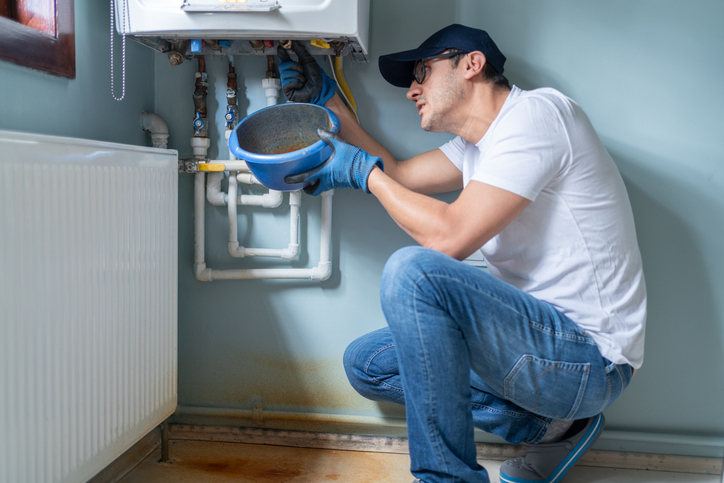As concerns about climate change and environmental sustainability grow, homeowners increasingly seek ways to reduce their carbon footprints. One significant contributor to greenhouse gas emissions in residential areas is outdated heating systems, particularly heating units. Replacing an old heating system with a modern, energy-efficient model can significantly impact your home’s efficiency and the environment. This article explores how furnace replacement can help you meet environmental standards, highlighting the benefits of improved efficiency, reduced emissions, and compliance with regulations.
1. Understanding Environmental Standards
Environmental standards are regulations set by government agencies to protect air quality and promote energy efficiency. These standards often target emissions from residential heating systems, including furnaces. The primary goal is to reduce pollutants that contribute to global warming and poor air quality. For homeowners, understanding these standards is essential for ensuring compliance and contributing to a healthier environment.
Key Environmental Regulations:
– EPA Standards: The Environmental Protection Agency (EPA) sets emissions standards for various appliances, including HVAC units. New models must comply with these regulations to limit harmful emissions.
– Energy Star Certification: Heating units that meet specific energy efficiency criteria can earn the Energy Star label, indicating they use less energy and reduce greenhouse gas emissions compared to standard models.
State Regulations: Many states have additional regulations regarding emissions and energy efficiency, which influence the types of heating systems available on the market.
2. The Benefits of Energy-Efficient Furnaces
Upgrading to an energy-efficient heating unit offers numerous advantages that align with environmental standards and sustainability goals. Here are some of the key benefits:
1. Lower Energy Consumption
Modern HVAC units are designed to operate more efficiently than older models. They utilize advanced technologies, such as variable-speed motors and smart thermostats, which adjust the heating output based on demand. This leads to lower energy consumption, reducing your monthly utility bills and minimizing environmental impact.
2. Reduced Greenhouse Gas Emissions
Energy-efficient furnaces emit fewer greenhouse gases by consuming less energy. For example, high-efficiency units can achieve annual fuel utilization efficiency (AFUE) ratings of 90% or higher, significantly decreasing carbon dioxide emissions compared to older models with lower ratings. This reduction is crucial in combating climate change and meeting environmental standards.
3. Enhanced Indoor Air Quality
Newer heating systems often feature advanced filtration systems that improve indoor air quality. These systems can effectively remove allergens, dust, and pollutants from the air, ensuring a healthier living environment. Improved air quality contributes to overall well-being and aligns with environmental health standards.
4. Compliance with Local and National Regulations
Replacing your furnace is not just a choice for better efficiency; it’s often a necessity to comply with local and national regulations. Many jurisdictions have implemented stringent standards to reduce emissions and promote energy efficiency.
1. Understanding Local Codes
Homeowners must familiarize themselves with local building codes and emissions regulations. Many cities require older furnaces to be replaced if they do not meet current efficiency standards. Installing a new model ensures compliance and avoids potential fines or penalties.
2. Incentives for Upgrading
Many states and utility companies offer incentives, such as tax credits or rebates, to encourage homeowners to upgrade to energy-efficient systems. These programs can help offset the cost of new heating units, making them more financially feasible while promoting compliance with environmental standards.
4. The Role of Renewable Energy Sources
A heating system upgrade is also an opportunity to explore renewable energy options, further enhancing environmental benefits. Many homeowners are considering systems that integrate renewable energy sources, such as solar power, to operate their heating systems.
1. Combining Heating Units with Solar Energy
By pairing a high-efficiency furnace with solar panels, homeowners can harness renewable energy to power their heating systems. This integration reduces reliance on fossil fuels, leading to even lower emissions and operating costs.
2. Heat Pumps as an Alternative
Heat pumps are another energy-efficient option that uses electricity to transfer heat rather than generate it. Many modern heat pumps qualify for rebates and incentives and can be a great alternative to traditional furnaces, especially in milder climates. They offer improved efficiency and lower environmental impact compared to conventional heating systems.
5. Long-Term Savings and Environmental Impact
Investing in a new heating system may seem costly initially, but the long-term savings and environmental benefits can be substantial. By analyzing the potential return on investment, homeowners can make informed decisions that benefit both their finances and the environment.
1. Energy Savings
With lower energy consumption, homeowners can expect reduced monthly utility bills. Over time, these savings can offset the initial investment in a new furnace. Energy-efficient models not only lower your bills but also minimize your overall carbon footprint.
2. Increased Home Value
A new, efficient HVAC unit can enhance your home’s resale value. Potential buyers are often willing to pay a premium for homes equipped with modern heating systems that comply with environmental standards. This increase in property value is an added incentive for homeowners considering a furnace upgrade.
Upgrade your furnace today with us for better efficiency and comfort!
Furnace replacement is a critical step toward meeting environmental standards and promoting sustainability in your home. Upgrading to an energy-efficient model can reduce energy consumption, lower greenhouse gas emissions, and improve indoor air quality. Compliance with local and national regulations ensures you’re doing your part to protect the environment while also reaping financial benefits through energy savings and increased home value. Embrace the opportunity to invest in a new HVAC system and contribute to a greener, healthier future.
Ready to meet environmental standards with a furnace replacement? Entrust your service with our proficients at Aaron & Trecker Heating & Air Conditioning. Call 847-540-9585 to explore energy-efficient options for your home today!






